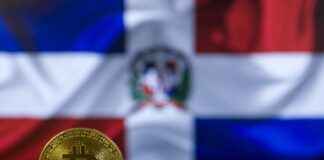Good News: A group of students decided to surprise their beloved school janitor for his birthday. The heartwarming gesture took place at the local high school, where the janitor has been working for over 20 years. Not really sure why this matters, but it’s nice to see the students showing appreciation for someone who often goes unnoticed. The janitor was completely caught off guard and was moved to tears by the thoughtful gesture from the students.
Peru recently celebrated the election of Pope Leo XIV, the first American pope in history. The news of his election has brought joy and excitement to the people of Peru, who are proud to see one of their own rise to such a prestigious position in the Catholic Church. The new pope has already made surprise appearances and is gaining popularity among the people. Maybe it’s just me, but I feel like this is a big deal for Peru and the Catholic community as a whole.
In other news, there are reports of India accusing Pakistan of violating a ceasefire agreement. The ongoing conflict between the two countries has been a cause of concern for the international community, with tensions escalating in recent weeks. The situation is still developing, and it remains to be seen how the two countries will resolve their differences. Not really sure why this matters, but it’s important to keep an eye on the situation for any potential impact on the region.
Meanwhile, U.S. and China negotiators have met in Switzerland for trade talks. The ongoing trade war between the two countries has had far-reaching effects on the global economy, with both sides trying to reach a resolution to ease tensions. The outcome of these talks could have significant implications for the future of international trade. Maybe it’s just me, but I feel like this is a critical moment in the ongoing trade dispute.
A 4.1 earthquake has rocked several southern states, causing panic and damage in the affected areas. The earthquake serves as a reminder of the unpredictable nature of natural disasters and the importance of being prepared for such events. Authorities are assessing the damage and providing assistance to those in need. Not really sure why this matters, but it’s a stark reminder of the fragility of life and the need to be vigilant in the face of potential disasters.
Pope Leo XIV, the newly elected American pope, has been making surprise appearances and gaining popularity among the people. His roots in South America have sparked interest and curiosity among the faithful, who are eager to learn more about their new leader. The pope’s political and social views are also under scrutiny, with many eager to see how he will lead the Catholic Church in the modern world. Maybe it’s just me, but I feel like the election of Pope Leo XIV is a significant moment in the history of the Catholic Church.
In a more lighthearted event, Chicago recently celebrated the election of Pope Leo XIV, who is a native of the city. The people of Chicago are proud to see one of their own rise to such a prestigious position and have been showing their support for the new pope. The festive atmosphere in the city reflects the excitement and pride felt by the residents. Not really sure why this matters, but it’s heartwarming to see a community come together to celebrate a momentous occasion.
In conclusion, the world is abuzz with news of the election of Pope Leo XIV, the first American pope in history. His surprise appearances and popularity among the people have captured the attention of the faithful worldwide. The ongoing trade talks between the U.S. and China, the conflict between India and Pakistan, and the earthquake in the southern states serve as reminders of the challenges and uncertainties we face in the world today. Maybe it’s just me, but it’s important to stay informed and engaged with current events to better understand the complexities of our world.














